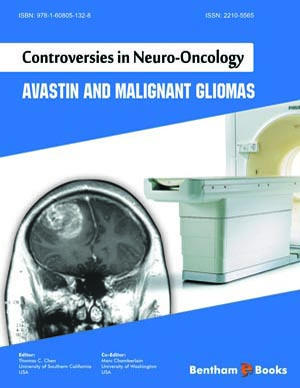Abstract
Gliomas, particularly those that are malignant, are rapidly fatal often within 2 years despite the use of surgery followed by radiation therapy with concomitant and then maintenance therapy. Angiogenesis is an important aspect of malignant glioma biology that is reviewed. As such it has become a target for therapy, via the ligand (VEGF) or its receptor (VEGFR). There are several trails, prospective and retrospective, that had shown the benefits of bevacizumab therapy alone or in combination with chemotherapy, often CPT-11. We review the scientific basis for targeting this aspect of tumor biology and the prospective data that exists to date. Still many questions remain as to the optimal schedule but also whether there is an added benefit with the addition of chemotherapy.


 Download PDF Flyer
Download PDF Flyer


















